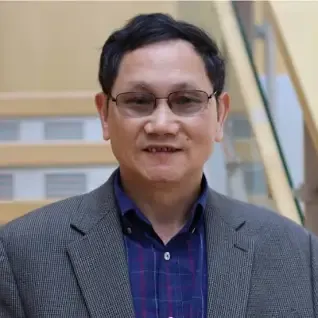Please note: this event has passed
Join us for two seminars from global experts in the field, Professors Jizhong (Joe) Zhou & Willy Verstraete. This event will be held both in person and on Microsoft Teams.
Programme
|
15.30 - 16.00 |
Registration, Tea and Coffee |
|
|
16.00 - 17.00 |
Systems microbiology: From genomes to ecosystems by Jizhong Zhou |
|
|
17:00 - 18:00 |
How to promote Microbial Biomes for next generation food by Willy Verstraete |
|
|
18.00 - 18.30 |
Questions session |
|
|
18.30 - 20.00 |
Networking event with buffet and drink |
|
Abstracts

Systems Microbiology: From Genomes to Ecosystems
Speaker: Professor Jizhong Zhou
Institute for Environmental Genomics, University of Oklahoma, USA
Abstract Twenty-first century microbiology faces several grand challenges, e.g., defining gene functions and regulatory networks, linking structure to functions, mechanisms controlling extremely high diversity, information scaling from genomes to ecosystems, modeling simulation and predictions. With the recent advances of omics technologies, microbiologists have begun to tackle some of these challenges. In this talk, I will first briefly highlight microbial functional genomics of several important environmental microorganisms. I will then compare the differences and performances of various types of metagenomic technologies in analyzing microbial community structure, followed by description of using metagenomic technologies to study global diversity and biogeography of wastewater treatment plants. I will also describe the most recent advance in GeoChip development, with examples on how to use omics technologies to understand microbial feedback mechanisms in response to climate warming in grassland ecosystems. Furthermore, I will describe several novel theoretical approaches to study the importance of stochastic processes in controlling microbial community diversity, and novel random matrix theory (RMT)-based frameworks for discerning network interactions. Finally, I will briefly highlight how to incorporate omics information into ecosystem models to improve predictions of grassland ecosystem’s responses to climate warming and elevated CO2.

How to promote Microbial Biomes for Next Generation Food
Speaker: Professor Willy Verstraete
CMET ,Ghent University, Belgium
Abstract Micro-organisms are powerful upgraders . They can grow at doubling times of a few hours. They convert organics to cell protein and valuable metabolites at rates in the range of 10-100 g dry matter per liter volume and per day. They thereby can achieve yields which surpass those of higher organisms with a factor 5-10 . It is now well established that microbes are optimal when allowed to operate in cooperation which each other , ie as diversified and constantly adapting microbiomes . The rumen represents such an eco-system fermentation . Yet , as of today when converting cellulose , its efficiency is limited ( of the order of 5-25%) and moreover , in terms of the climate change , the rumen produces the undesirable methane gas . In terms of sustainability of the planet earth , R&D should focus on a route by which ligno-cellulosic plant fibers can be fermented to valuable commodities by means of top-performing microbiomes , possibly also fixing nitrogen from air. A biorefinery using plant derived cellulosic input materials and operating by using genetically and technically engineered microbial biomes , holds potential to extend largely the food supply of the planet and decrease the impact of the food and feed production on global warming.
The perspective to use symbiotic fermentations needs a new mindset among scientists , consumers and particular also the regulators. Indeed, the latter in the EU tend to be mesmerised by the term ‘precision microbiology ‘. Thus they are very restrictive towards fermentations which optimally use the power of naturally evolving microbial symbiotic cultures . Microbial biomes need a powerful vehicle such as ‘ innovation testbed systems with restricted regulatory requirements ‘ in order to attain the status they deserve and require in the future supply chains . There is a need to urgently educate the public at large on the potentials of microbial biomes.
Event details
K0.20King's Building
Strand Campus, Strand, London, WC2R 2LS
